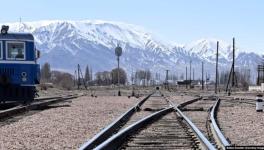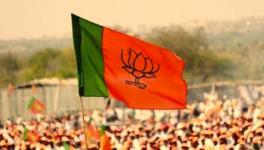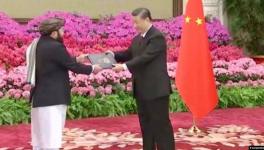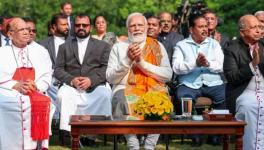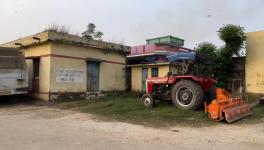The Persecution of Minorities in Pakistan is Institutionalised, has Constitutional Sanction: Rabia Mahmood
Rabia Mahmood, Pakistani Journalist and Human Rights Defender speaks to Teesta Setalvad in Communalism Combat-Hillele TV’s exclusive interview: “Minorities in Pakistan are excruciatingly persecuted. They are extremely oppressed, marginalsied and face a serious security threat,” Rabia Mahmood “It looks like they have nowhere to go; as if they have no one in their bag, at least not anyone in positions of power,” Rabia Mahmood “There are activists, grassroot level minority community worker, human rights lawyers and even some minority representatives in the Provincial and National Assembly who raise questions, but they are not empowered”, Rabia Mahmood “Oppression is institutionalised. It is Constitutional, in Pakistan, Rabia Mahmood “For example, every time one talks to police men or law enforcement –as I did for the research on Religious Minorities for the Jinnah Institute – and I ask for example, “ why did you demolish the minarets of an Ahmadi Mosque in Pakistan (We are not supposed, under the law which is Constitutionally valid, to call our place of worship a Mosque in Pakistan!), the answer is that the law itself is the problem….,” Rabia Mahmood
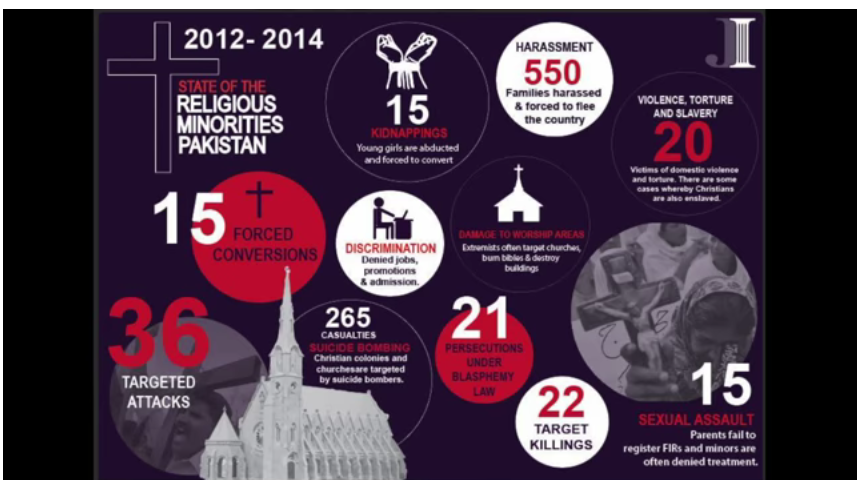
Question (Teesta Setalvad) : Where does the genesis of the problem lie?
Is it the formation of the state itself, the shift away from a secular democratic structure to something else? Is it legislation , the law and order apparatus or non state actors?
Answer :It is actually all of the above with non state actors coming last. The problem in Pakistan starts with the law itself. Legislation that had been brought in and legitimised which is at the source of the persecution of the minorities.
Section 295c of the Pakistan Penal Code (PPC) is the amended section of the criminal law that has brought in the offence of blasphemy. “Denigration” of religion under Sections 295a, 295b and 295c relate only to Islam. So, no other faith or belief system enjoys the same protection in Pakistan. The punishment for violation of section 295c, the blasphemy provision, is ‘death. There is capital punishment for blasphemy!
Then we have the abominable and oppressive XX 1984 the Anti Ahmadi ordinance which is now constitutional and part of the Pakistan Penal Code. Its very name signals its oppressive character. Ahmadis cannot call themselves Ahmadis in Pakistan because that is what the narrow section that interprets Islam in a certain way in Pakistan decides.
Kadiani is the term used for Ahmadis and Kadiani is a term that is viewed as derogatory by the community of Ahmadis that have been given the name.
This is an Apartheid Law dubbed as such by human rights activists. The law itself targets a specific section of the Pakistani people, a specific community. It is so loosely written that it can make victimisation easy.
What does this Apartheid law entail? Ahmadis cannot pick up (use) Muslim names, cannot grow a beard, cannot cover their heads!
The very base of the Ahmadi faith is thwarted by law in Pakistan. Legitimate faith practices of the Ahmadis are debarred by law.
Question (Teesta Setalvad):Who are the ones targeted under Section 295c the Blasphemy law provision in Pakistani Criminal law?
Answer: Hindus are persecuted, Christians are persecuted and also, many Muslim sects not considered legitimate by the small minority that rules Pakistan have also faced persecution.
These sections that are not considered legitimate include not just the minority Muslim Shia community. But also include the Wahabis, the Deobandis and the Barelvis. Besides cases against his section of the law have also been filed for various vicious pernicious and extraneous reasons, even to settle personal scores.
The data of the past decade(s) shows that once arrested under the blasphemy law the victim has no respite. Some of those fortunate get acquitted. Even after acquittal those fortunate to get out of the clutches of an oppressive law can hardly ever live safe lives.
Besides the law, attitudes towards the minorities are shaped by Pakistan’s education curriculum and what they hear from some sections of the clergy and the police.
Question (Teesta Setalvad): Are there, or have there been any concrete efforts to repeal these laws?
Not really. We have had Parliamentarians speak about its unjust provision in Parliament, we have had judges passed judgements to create a jurisprudence against its misuse. But his is simply not enough, not concrete enough.
After the Peshawar school attack (December 16, 2014),Pakistan government came out with a National Action Plan against Hate Speech. There have been 21 arrests under this policy, including one arrest of a clergyman and those arrested being prosecuted for five to eight years imprisonment.
But still if you travel through Lahore, Faislabad or Karachi and absorb the messaging at public spaces in Pakistan: the banners, the posters and the advertisement on rickshaws; there is a messaging against Ahmadis, or Shias, if not then others. This is the messaging in the public sphere,”actions or speeches against the ‘majority’ religion’ which is the only legitimate system and needs to be defended”. The message is that this version of Islam needs to be defended from anyone who does not subscribe to it.
The Pakistani government has banned hate materials and included among these are materials produced by Ahmadis and Christians!! So if this is the definition of hate materials you can understand how this plays out.
(The interview was taken some months ago, Rabia Mahmood)
References:
1.‘Secretion violence’: Shiite leader gunned down at imambargah; http://tribune.com.pk/story/488117/secretion-violence-shiite-leader-gunned-down-at-imambargah/
2.Silence resonates after Ahmadi graves’ vandalised; http://tribune.com.pk/story/477541/violation-of-minority-rights-silence-...
Get the latest reports & analysis with people's perspective on Protests, movements & deep analytical videos, discussions of the current affairs in your Telegram app. Subscribe to NewsClick's Telegram channel & get Real-Time updates on stories, as they get published on our website.










